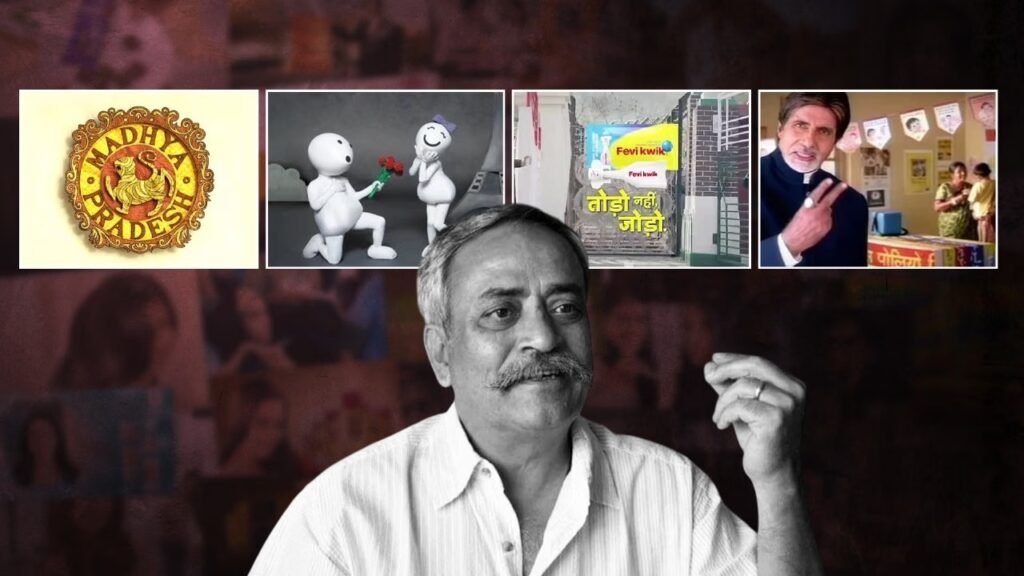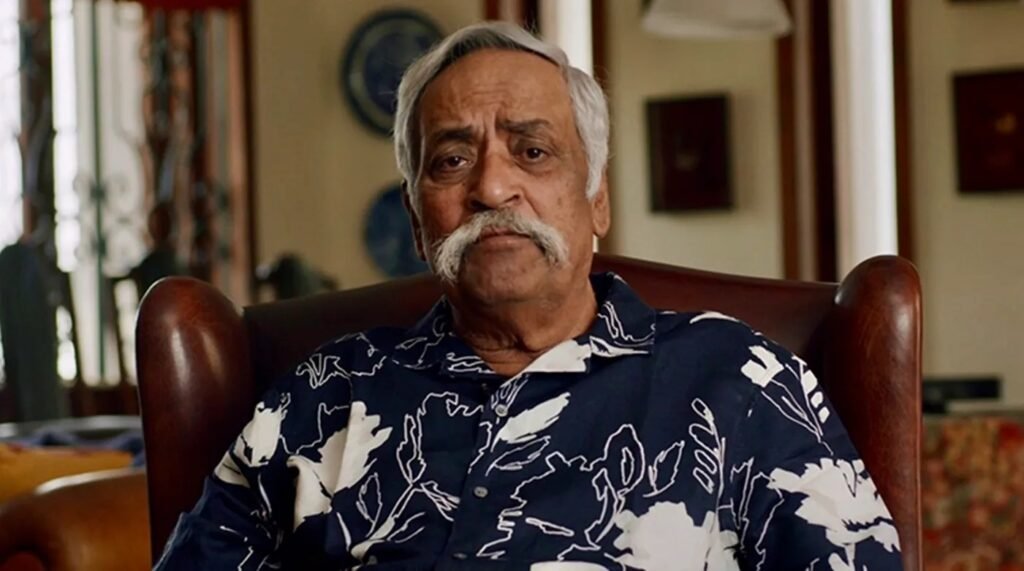The Indian advertising and entertainment industries were plunged into grief on October 23, 2025, with the passing of Piyush Pandey, the legendary adman whose creative genius transformed Indian storytelling. The Padma Shri recipient, aged 70, passed away following complications from a severe infection, leaving behind a legacy defined by groundbreaking campaigns and heartfelt communication.
Singer and actress Ila Arun, Piyush’s sister, confirmed the heartbreaking news on Instagram. Her emotional note read, “With a devastated, heartbroken, and lifeless spirit, I am writing to inform you that we have lost our dearest and greatest brother, Piyush Pandey, this morning”. She also mentioned that their brother, renowned ad filmmaker Prasoon Pandey, would share further details.
The Life and Legacy of Piyush Pandey
Born in Jaipur, Piyush Pandey’s creative instincts were nurtured from an early age. Before becoming a pioneer in Indian advertising, he had dabbled in cricket, tea tasting, and construction, experiences that broadened his understanding of common people, reflected later in his deeply relatable campaigns.
He joined Ogilvy in 1982 and transformed the agency into a powerhouse of creativity. Pandey became the Executive Chairman and Chief Creative Officer Worldwide at Ogilvy, crafting communication that spoke to millions through simple yet powerful emotions.
Some of his iconic creations include Fevicol’s “The Ultimate Adhesive” campaign, Cadbury Dairy Milk’s “Kuch Khaas Hai,” and Asian Paints’ “Har Ghar Kuch Kehta Hai.” These ads didn’t just sell products; they told stories that became part of India’s cultural fabric.
In recognition of his contributions, he received the Padma Shri in 2016 and international honours like the CLIO Lifetime Achievement Award in 2012. His leadership helped Ogilvy India achieve twelve consecutive years as the top-ranked agency in the country’s creative reckoning.
Ila Arun’s Heartfelt Tribute
Ila Arun’s emotional post captured the depth of her loss. Alongside a nostalgic photo of her applying a tilak to Piyush’s forehead, she wrote that words couldn’t convey the pain of losing her “dearest and greatest brother.” Her post resonated widely, drawing condolences from industry icons and fans alike.
In interviews, Ila described Piyush as more than a sibling; he was the family’s life and spirit. “He was the life of our family,” she told reporters, remembering his infectious enthusiasm, humour, and deep empathy.

The Cause of His Untimely Death
According to the official statement from Ogilvy, Pandey had been battling a serious infection that took a fatal turn. Ila Arun later confirmed he had been suffering from pneumonia and succumbed to complications early on the morning of October 24, at around 5:50 a.m..
Ogilvy issued an internal memo expressing profound grief: “It is with an unfathomable sense of loss that we write to you about the passing away of our beloved Piyush Pandey. He passed away peacefully this morning”.
Tributes Pour in from Across the Nation
Tributes flooded social media as news of Pandey’s death spread. Prime Minister Narendra Modi expressed his condolences, calling him “a monumental creative force who changed the way India communicated.” The Prime Minister lauded how Pandey “gave Indian advertising its unique voice”.
Filmmaker Hansal Mehta’s heartfelt post struck a chord as he wrote, “Fevicol ka jod toot gaya. The ad world lost its glue today”. Musicians, actors, and corporate leaders echoed similar sentiments, calling his passing an “end of an era” for advertising and creativity in India.
A Creative Genius Remembered
Known as “the architect of Indian advertising,” Pandey’s genius lay in simplicity. He had a knack for understanding Indian ethos; his ads reflected local humour, aspirations, and emotions with unmatched authenticity. From the rustic charm of Fevicol’s bonded carpenters to Cadbury’s jubilant cricket pitch dance, his work blended art and realism.
His campaigns were not merely commercial; they became part of India’s collective consciousness. He proved that great advertising could transcend gimmicks and instead speak truthfully to human hearts.
The Personal Side of Piyush Pandey
Beyond the professional accolades, Piyush was known for his humility and warmth. Colleagues described him as a mentor who always prioritised people over profit. He was a friend to the young, a guide to the experienced, and a storyteller who made every meeting feel like a masterclass in human emotion.
His camaraderie with his siblings, Ila and Prasoon, was well known in artistic circles. The trio often spoke about each other with deep pride and affection, representing a rare blend of creative brilliance and grounded Indian values.
Legacy That Will Endure
Even in his absence, Piyush Pandey’s influence continues. His work taught generations of advertisers that storytelling must stem from human truth. The industry he helped build stands as a testament to that ideology.
Whether through brand slogans like “Fevicol ka jod,” “Har ghar kuch kehta hai,” or “Kuch khaas hai zindagi mein,” Piyush gave India not just ads but memories.
For Ila Arun and her family, the void is unimaginable. For India, his passing marks the loss of a creative beacon who changed not just advertising, but the way stories were told, seen, and felt.
Piyush Pandey’s passing is not just the end of a life but a chapter of India’s cultural narrative that will forever be remembered with admiration and love. His words, images, and music remain embedded in every Indian household that ever smiled at an Ogilvy ad, a legacy glued together, fittingly, by the unbreakable bond of creativity.
